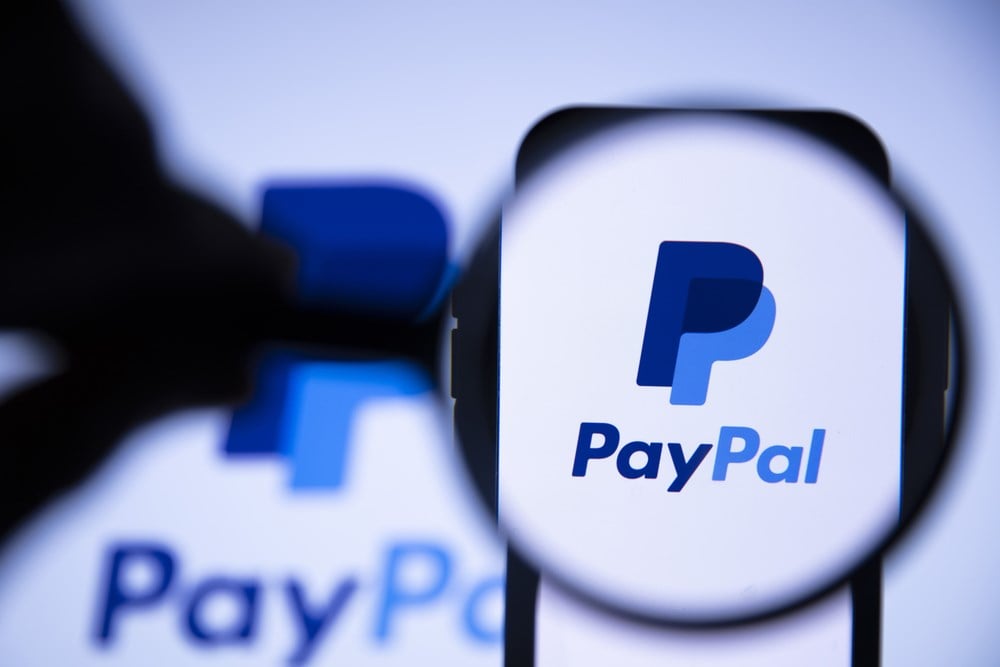
Remember that guy who got knighted by Queen Elizabeth for his philanthropic accomplishments? No? Maybe you remember him from multiplying his money after the 1929 depression and coming up with his now famous saying, which rhymes with investing at the point of maximum pessimism.
His name is Sir John Templeton, one of the greatest value investors of modern history, and his philosophy was as sophisticated as it was simple: just buy a good business at a price that reflects the maximum point of pessimism coming from the market as a whole. Today, you can take a page right out of his own book.
You may guess where this is going after looking at the price chart for PayPal (NASDAQ: PYPL) and realizing it is not only at a 52-week low but also at prices not seen since 2017, despite the business has grown its earnings by nearly triple, and its revenues by more than double.
Value Gap
Here's something to get you started on the foundational reasoning behind the undervaluation of this company and why today's price is nothing short of outrageous. Looking at the financials, you'll notice that for 2017, the business generated $1.47 earnings per diluted share, right?
Well, back then, the stock traded at a price-to-earnings ratio of roughly 50.0x. Today, the business has generated EPS of $3.40 for the last twelve months, and it deals nowhere near the multiples of back then; try more like 14.0x.
You may be asking yourself whether the business is more profitable than when it commanded such elevated valuation multiples, and the answer is a resounding yes. On an ROE (return on equity) basis, 2017 generated a rate of 12.0% return, while the past quarter finished at an 18.0% rate.
By the way, today's 14.0x P/E is the cheapest valuation the company has ever seen; not even the COVID-19 pandemic could knock this multiple down to these discounts. Does Sir Templeton's 'maximum pessimism' thesis begin to set in around PayPal? No? Okay, check this out.
Regarding technology stocks, namely those involved with payment processing, PayPal is the clear outlier on a valuation basis. The industry carries an average P/E of 24.7x, throwing PayPal into a 62.5% discount to the industry!
Typically, the market will discount stocks that it believes will underperform on a financial basis, just like you would underpay for a product or service you believe to be of lower quality, right? In this case, the market is outright wrong, and you can call the mistake out yourself.
Close the Gap
How can you know that the market is mispricing this company? Easy, the industry is expecting an average EPS growth of 16.6% for the next twelve months; analysts are pointing to PayPal's EPS growing by as much as 16.5% for this period.
So, how come the market is discounting a set of earnings that are set to grow the same as the industry? Analysts are asking themselves the same question. So far, they haven't found a good reason.
This is the conclusion judging by their consensus price target of $85.5 a share, implying that the stock needs to rally by as much as 66.8% from today's prices.
While part of the tech sector, PayPal has underperformed the Technology Select Sector SPDR Fund (NYSEARCA: XLK) by as much as 64.0% on a year-to-date basis; talk about a discount.
Now that earnings are right around the corner, the CEO, Daniel H. Schulman, expects something big to come out of the firm he is running. After buying up to 26 thousand shares for a total value of $1.9 million, the coming earnings release should be nothing but explosive.
The company is riding on the momentum it started to build during the second quarter of 2023, reporting strong growth across the board. With payment volumes up by 11% and revenues growing by 8%, the business model will withstand the current economic environment.
EPS grew by 24% over the year as well. Hence, the market is unaware of the high likelihood of PayPal delivering another double-digit growth clip in the coming announcement. Nonetheless, management shrugged off the unawareness by buying back up to $1.5 billion worth of stock, that's almost 3% of the company's size!
Don't fight the market, don't fight the FED, and never fight management unless you're Carl Icahn. The cards are being dealt for this stock to close its massively pessimistic value gap; you can look at the fire through a window, or you can stand by it and feel its warmth wrap around you.

















